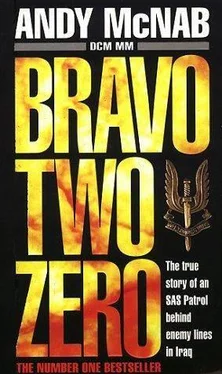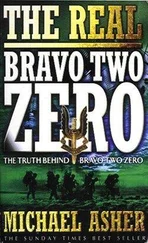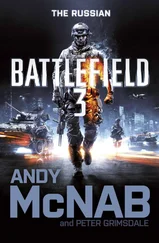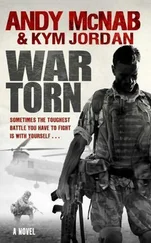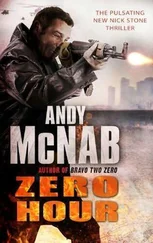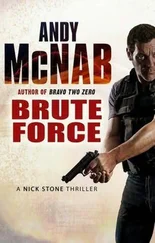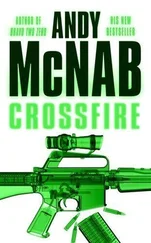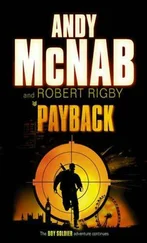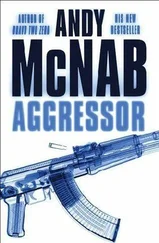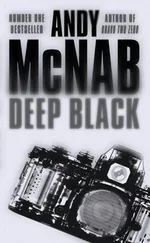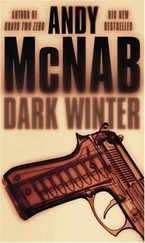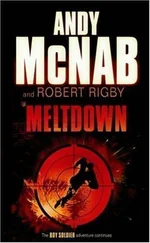We worked out that we would need explosives and” ammunition, two weeks’ worth of food and water per man, NBC clothing, and, only if there was room, personal kit. Vince did the calculations and reckoned that we could just about lug the lot ourselves.
“So we’re going to patrol on foot,” he said. “But do we get people to take us in vehicles, or are we going to get a heli and patrol in?”
“More chance of compromise in vehicles,” Mark said. “We might not even get there without a resupply of fuel.”
“If we need a resupply by heli, why not just fly in anyway?” Legs said.
In the end the team consensus was for a heli drop off.
“Can we get an aircraft?” I asked Bert.
He went to the operations room to check it out.
I looked at the map. It must have been going through all of our minds how isolated we’d be. If we got into trouble, there’d be nobody up there to bail us out.
Bob said, “At least if we’re in the shit we don’t have too many hills to hump over to get away.”
“Mmm, good one,” Dinger grunted.
Bert reappeared. “We can get you an aircraft, no problems.”
I opened the next debate. “Where should they drop us off then?”
The good news about helicopters is that they get you there quickly. The bad news is that they do it noisily and can draw antiaircraft fire. The landing, too, is quite compromising. We didn’t want it to be associated with the task, so we would want to choose a site that was at least 12 miles from the MSR itself. We wouldn’t want to be landed east or west of the bend in the MSR because it would be harder to navigate to. Navigation is not a science but a skill. Why make the skill harder by putting in problems? The object was to reach the LUP (lying-up point) as quickly as we could.
“Should we fly north over the MSR and then tab back south, or should we approach it from the south?” I said.
Nobody saw any advantage in crossing the MSR with the aircraft, so we chose to be dropped due south of our chosen point. Then all we had to do was navigate due north and we’d hit the MSR.
We would march on a bearing and measure distance by dead reckoning. Everybody knows his own pacing, and it’s common practice to keep tally with a knotted length of para cord in your pocket. I knew, for example, that 112 of my paces on even ground equaled 325 feet. I would put ten knots in a length of para cord and feed it through a hole in my pocket. For every 112 paces I marched, I would pull one knot through. When I’d pulled ten knots through, I would know that I’d covered six-tenths of a mile, at which point I would check with the “check pacer.” If his distance was different from mine, we’d take the average. This would be done in conjunction with Magellan, a handheld satellite navigation system. Sat Nav is an aid but it cannot be relied upon. It can go wrong and batteries can run out.
We couldn’t yet work out when we would want to be dropped off; we would do the time and distance evaluation later, depending on what the pilots said. It was up to them to gauge the problem of antiaircraft emplacements and troop concentrations, together with the problem of fitting us into a slot that didn’t conflict with the hundreds of other sorties being flown every day-a factor known as deconfliction.
By this stage of the planning we knew where we were going, how we were getting there, and more or less where we would like to get dropped off.
There was a knock at the door.
“We’ve got the pilot here if you want to talk with him,” said a spook.
The squadron leader was shorter than Mike, with ginger hair and freckles.
“Could you get us to this point?” I asked, showing him the map.
“When?” he asked in a flat Midlands monotone.
“I don’t know yet. Some time after two days.”
“At the moment, yes. However, I’d have to do my planning on deconfliction, etcetera. How many of you?”
“Eight.”
“Vehicles?”
“Just equipment.”
“No problem.”
I sensed that in his mind he was already calculating fuel loads, visualizing ground contours, thinking about antiaircraft capabilities.
“Have you got any other information-as in maps?”
“I was going to ask you the same question,” I said.
“No, we’ve got jack shit. If we can’t get you there, where else do you want to go?”
“All depends where you can get us to.”
The pilot would run the whole show from pickup to drop-off, even though he’d have no idea what the task was. We would trust his judgment totally; we would just be passengers.
He left and we organized another brew before we tackled the tricky bit: how to attack the landlines and Scud.
We wanted to work out how to inflict the maximum amount of damage with the minimum of effort. With luck, the cables would run alongside the MSR, and every 5 miles or so there would be inspection manholes. We didn’t know if we would find a signal booster system inside the manholes, or what. But Stan suggested that because of the economics of laying lines, there might even be a land communication line inside as a bonus.
More questions for Bert. Would the manhole covers be padlocked? Would they have intruder devices, and if so would we be able to defeat them? If not, would we have to start digging for the landline itself? Might they be encased in concrete or steel or other protective devices? If so, we might have to make a shaped charge to pierce the steel. Would the manholes be flooded to prevent attack? Strangely enough, this would actually be an advantage, because water acts as a tamping for explosives and would therefore increase the force of the explosion.
We worked out that, depending on the ground, we’d do an array of four, five, or six cuts along the cable, and each one of them would be timed to detonate at different times over a period of days. We’d lay all the charges in one night, and have one going off, say, in the early evening next day. That would give one whole night when, at best, it was incapable of being repaired, or at least they would be slowed down, and they’d come probably at first light to fix it. They’d eventually find out where the cuts had been made and send a team down to repair them. It made sense for us to try and include these people in the damage if we could, thereby reducing the Iraqis’ capability to carry out other repairs. Mark came up with the idea of putting down Elsie mines, which are small antipersonnel mines that work on pressure. When you step on them, they explode.
If everything went to plan, the first charge would make the cut and when they came down, possibly at first light, to repair it, the technician or a guard would lose his foot to an Elsie mine. The next evening, number two would go off, but we’d have laid the charge without Elsie mines. However, the boys that came down would be very wary, take their time, or maybe even refuse to do the job. The following day, another would go off, and this time we would have laid Elsie mines. Maybe they’d be more confident, and they’d get hit again. The only problem would be that we couldn’t place the Elsie mines too near the site we were blowing, or the explosion might dislodge or expose them.
In the worst scenario, we’d have rendered the cable inoperable over six days. At best, we might have wrecked it for ever after the first day. It was a brilliant thought of Mark’s, and we added two boxes of Elsies -twenty-four in all-to the equipment list.
In essence, we would do as many cuts as we could with the ordnance and time available. It might be that we’d have to do cuts that were 12 miles apart, and take two nights doing it. I hoped we wouldn’t have to blow the manholes to get at the cables, because if they checked other covers they’d be sure to find the other devices. To cater for that, we would put an anti handling device on all the timers. It would either be a pull switch or a pressure release, which would detonate the charge if they lifted it.
Читать дальше
